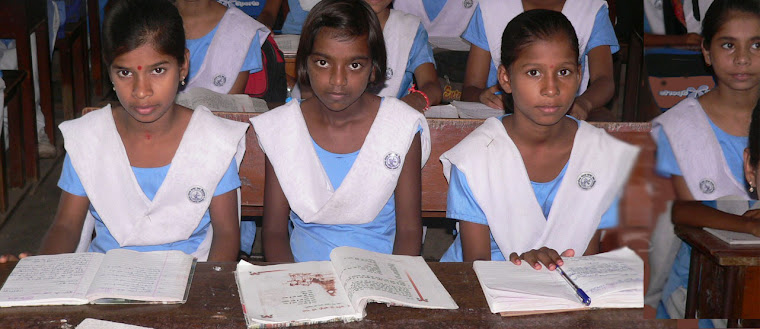“More than 796 million of the world’s adults or one in five
adults don’t know how to read or write, while 67.4 million children are out of
school”
------- UNESCO
Adult and Youth Literacy Report 2011
The United Nations
defines illiteracy as the inability to read and write a simple message in any
language. While the number of illiterate persons has fallen over the past
decade, the UN predicts that the world illiteracy would increase in the 21st
century as merely a quarter of the world’s children were in school by the end
of the 20th century.
The highest
illiteracy rates are found in the less developed countries of Africa, Asia and
South America. The adult literacy rate is the lowest in Saharan Africa (63%)
followed by Southern Asia (62%). Over two-thirds of the illiterate people are
in countries such as Bangladesh, China, Egypt, Ethiopia, India, Indonesia,
Nepal, Nigeria and Pakistan.
It is also evident
that extremely lower literacy rates are concentrated in South Asia. According to UNESCO, around 412 million
people in Southern Asia are unable to read and write. The gender disparity is
also the greatest in Southern Asia where 73% of all men but only 51% of women
are able to read and write. Staggering numbers indicate that India alone
constitutes 440 million illiterate citizens. The UNESCO puts this plight of
illiteracy in South Asia in simple words when it states that, “The region of
South and West Asia is home to more than one-half of the global illiterate”.
Impact of Illiteracy on Poor Children
Illiteracy is a
vicious circle that snares the entire family. Parents and other adults who are
unable to read or write miss out an opportunity to socialize and are hence
depressed. This in turn results into lower self-esteem, which inadvertently
passes on to young children. In a survey conducted by UNICEF from over 35
recent households covering most regions of the world, it was found out that
children of uneducated mothers are more than twice as likely to be malnourished
or die as compared with children of mothers with at least secondary or
higher-level education. Out of the 35 households that UNICEF surveyed, majority
of them were from Africa and South Asian countries such as Bangladesh, India,
Nepal and Pakistan and the others. In addition, lack of literacy, also leads to
deterioration in health of children. Due to lack of sex education, lethal
diseases such as HIV/AIDS and other STDs are profound in a majority of poor and
young adult children in the South Asian countries. This is evident from the
fact that a large number of people in South Asian countries are infected by
HIV/AIDS mostly of whom are young poor children especially girls who are
completely deprived of any kind of education.
Illiteracy among
adults in many developing countries has been one of the primary causes of
various socio-economic problems prevailing in these countries. For instance,
illiterate people are unable to get proper employment, which in turn affects
their ability to provide proper education to their children. Furthermore, due
to lack of employment opportunities, these people are unable to feed their
children properly and hence the children fall prey to various diseases such as
malnutrition and are not fit enough to pursue any kind of education.
In some developing
countries such as India, Pakistan and Nepal, lack of education and
understanding of basic knowledge about what is right and wrong, and a desire to
douse the hunger compels many poor children especially males to take the path
of crime and forces them to embrace anti-social activities such as drug
peddling, terrorism and others disruptive activities.
Combating illiteracy and improving living
conditions of poor children
“The cost of educating children is far outweighed by the cost
of not educating them”
